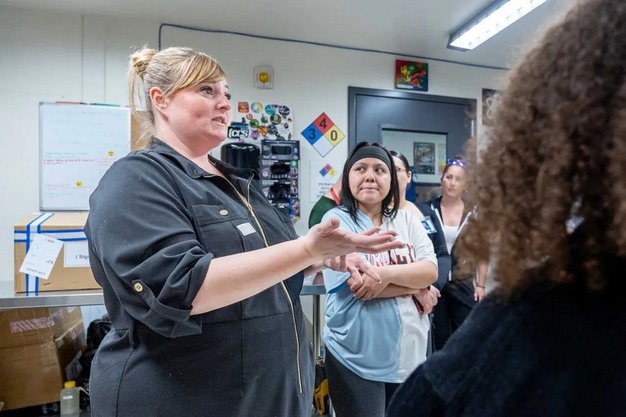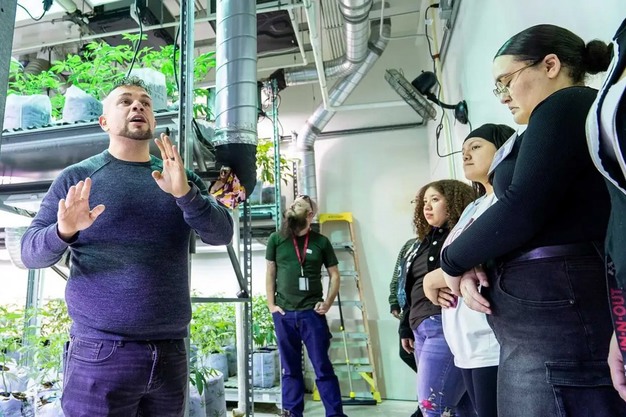Once a pioneer in the legalization of recreational cannabis, Colorado has lost its footing as a leader in the industry, experts say, as more than 20 states have since followed suit.
However, a new certificate program at the Metropolitan State University of Denver aims to serve as a catalyst in reviving the state's reputation as the 'Silicon Valley of Cannabis.'
MSU Denver will be the first higher-education institution in the nation to offer students a comprehensive view of cannabis hospitality, with an emphasis on the supply chain, said Shannon Donnelly, an affiliate professor in the University's School of Hospitality and a former cannabis regulator for the City of Denver.
Students in the program will study a wide range of topics that will focus on the responsible sale and consumption of cannabis in dispensaries and in food preparation, she said.
"This represents a significant leap forward in formalized cannabis education," said Donnelly, who developed MSU Denver's cannabis curriculum. "We're defining cannabis in hospitality."
Shannon Donnelly speaks about cannabis to a class in the School of Hospitality. Photo by Josh Geurink
The University will offer an entry-level Cannabis Hospitality Specialist certificate and a more advanced Cannabis Hospitality Manager certificate. Both certificates will be offered to degree-seeking and non-degree-seeking students, with classes to begin this fall.
"We want to equip those working in the industry with the knowledge and skills to create an elevated experience centered on high-quality, responsible customer service that can only truly be perfected through the hospitality lens," said Donnelly. "If we're going to create spaces that are safe enough for users of all levels to consume, we need to understand the entire supply chain."
Along with the certificates, MSU Denver is forming state and international advisory boards that will provide recommendations to the University and collaborate on joint initiatives. The state board will aim to enhance student opportunities, develop curricula, promote social equity in the industry, foster research collaboration, and identify financial resources.
The international board, meanwhile, will aim to contribute to the global standardization of cannabis education, explore international job placement opportunities, promote student exchange programs, and provide insights on global drug law reforms.
Albert Gutierrez leads a tour of his company, Bud & Mary's, with students from MSU Denver's School of Hospitality. Photo by Josh Geurink
"It's encouraging to see MSU Denver hoping to optimize new methods of consumption that allow people to interact with each other in hospitality settings while keeping safety and responsibility in mind," said MSU Denver graduate Albert Gutierrez, owner and president of the cannabis company Bud & Mary's and a member of the state advisory board.
Gutierrez emphasized the importance of the leadership and management courses that will meet a significant need in the industry. "We need people who know how to navigate relationships since so many regulatory departments have to visit facilities to ensure compliance," he said. "Sometimes, that professionalism is missing in this industry."
Recent MSU Denver graduate Luke Mantych is a cocktail preparer for Workbench Dining, a private fine-dining experience that offers cocktail and gourmet cannabis pairings in a 10-course series.
Mantych is considering taking courses in MSU Denver's Cannabis program to help advance his career. Such programs, he said, help remove the stigma associated with cannabis.
"People think of cannabis as something that can't be sophisticated or elevated," he said. "But there are avenues to make the experience as elevated as wine pairings, and it's exciting that we're moving in that direction."
Source: red.msudenver.edu
